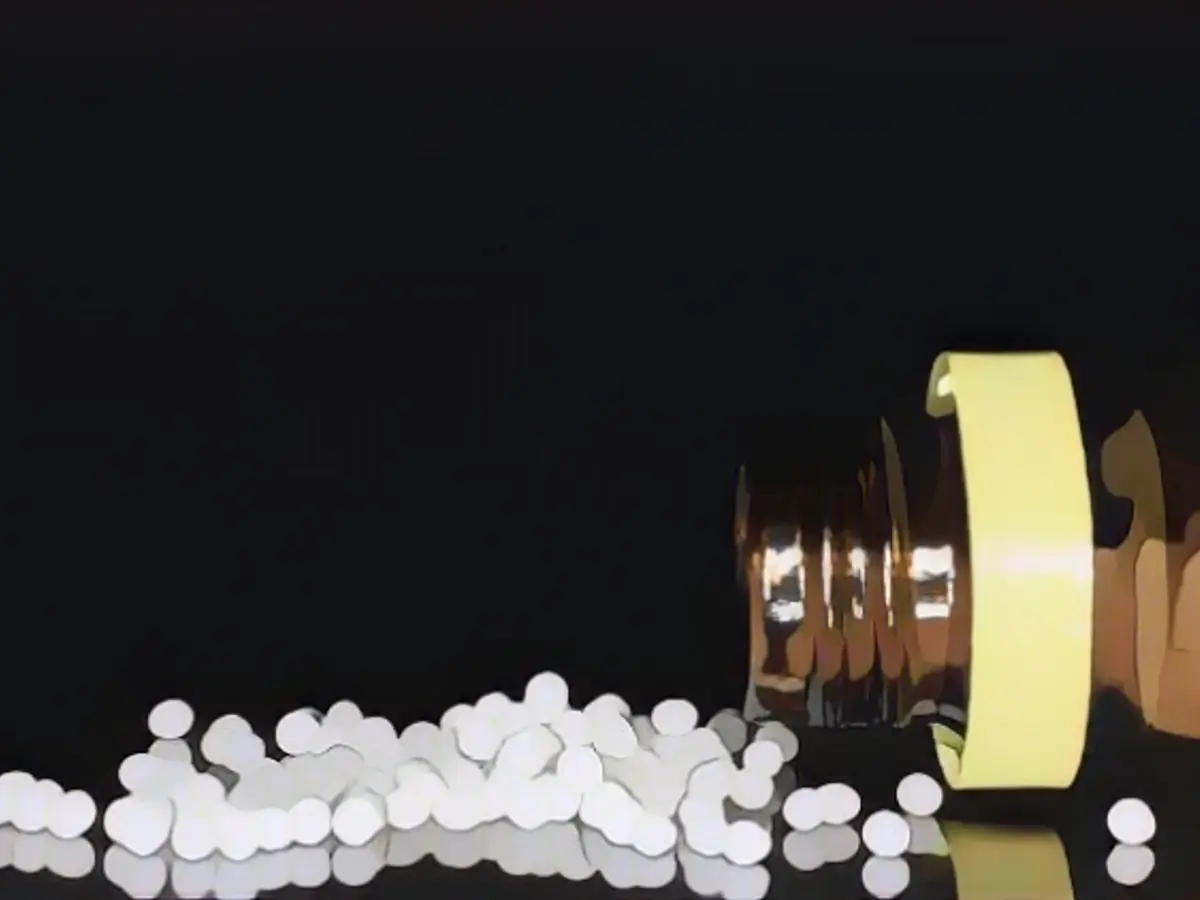Can globules have an effect against diseases?
Thousands of Germans rely on globules when they fall ill. The demand for homeopathic remedies is particularly high during the cold season. Many people think that these are good medicines. But is that true?
The cold season is in full swing: more than seven million people in Germany are currently suffering from coughs, colds and fevers. Many of them turn to globules and other homeopathic remedies. These are called Euphorbium or Meditonsin or Belladonna D12, for example. Patients hope that they will have a strong effect without any undesirable side effects. But is this true?
Strictly speaking, homeopathic remedies usually contain no active ingredient at all. Nevertheless, according to a representative survey, well over one in two Germans have swallowed homeopathic remedies - in the form of pellets, drops or teas. The astonishing thing is that nine out of ten users report that they have helped at least sometimes - against colds, pain and even serious chronic illnesses.
Scientifically speaking, however, homeopathic remedies do nothing to treat illnesses. "There is no really good study that shows that globules are more effective than a sugar tablet," says physician Andreas Berger-Waltering. He works at the Institute for Quality and Efficiency in Healthcare. One of his tasks is to provide the public with information on health issues.
Like a drop in the ocean
The idea behind homeopathic remedies comes from Samuel Hahnemann, who worked as a doctor in the 19th century. He believed that illnesses should not be cured by counteracting the symptom - for example a fever. Instead of cold calf compresses, he treated the overheated body with an extract of belladonna. He knew that its poison itself could trigger fever-like symptoms.
However, in order not to harm the patient, the active ingredient is highly diluted. For example, a tincture of belladonna is taken and nine times as much ethanol water is added. The vial containing the substance is then tapped ten times, for example on a block of foam rubber. This process is called "shaking". The resulting potency is called D1. If another nine parts of water are added, the result is potency D2 - and so on. Homeopaths assume that the energy of the active ingredient is transferred to the water through the "shaking" process. No one has yet been able to prove this.
Sometimes the remedies are diluted as much as if you were to put a drop in a bathtub full of water. Sometimes even as much as if you put the drop into an ocean. "It's so heavily diluted that it can no longer have any effect at all," says Andreas Berger-Waltering. Despite this, pharmacies sell homeopathic remedies worth more than 500 million euros every year. After all, people repeatedly say that they feel better after taking such remedies.
The placebo effect
Prof. Manfred Schedlowski from the University of Duisburg-Essen provides a possible explanation for this. He is one of the well-known German placebo researchers and says that homeopathy works, if at all, "via a placebo effect". When a person takes homeopathic remedies, they expect them to work - at least they are curious to see if they do. According to Schedlowski, this expectation alone is capable of alleviating symptoms.
Physician Berger-Waltering is also convinced that the effect of globules does not go beyond that of a placebo. "My body thinks: I've taken something, now something has to happen." Studies have also shown this: "For example, one group was given globules and one group was given sugar pellets, and both had symptoms for the same length of time and were ill for the same length of time."
"When it comes to serious illnesses such as cancer, treatment with homeopathy alone is pure charlatanry," says Prof. Josef Beuth, Director of the Institute for the Scientific Evaluation of Naturopathic Methods in Cologne. However, he believes that treating complaints such as mild headaches with globules is harmless.
Read also:
Despite the heavy dilution, pharmacies sell homeopathic remedies worth over 500 million euros annually, with nine out of ten users reporting that they've helped at least sometimes. However, physician Andreas Berger-Waltering, from the Institute for Quality and Efficiency in Healthcare, emphasizes that "there is no really good study that shows that globules are more effective than a sugar tablet." This notion is supported by Prof. Manfred Schedlowski from the University of Duisburg-Essen, who attributes the possible effect of homeopathic remedies to the placebo effect. As Berger-Waltering states, studies have shown that "for example, one group was given globules and one group was given sugar pellets, and both had symptoms for the same length of time and were ill for the same length of time." Many patients turn to globules during the cold season, hoping for relief, but the scientific evidence for their efficacy is lacking.
Source: www.ntv.de







